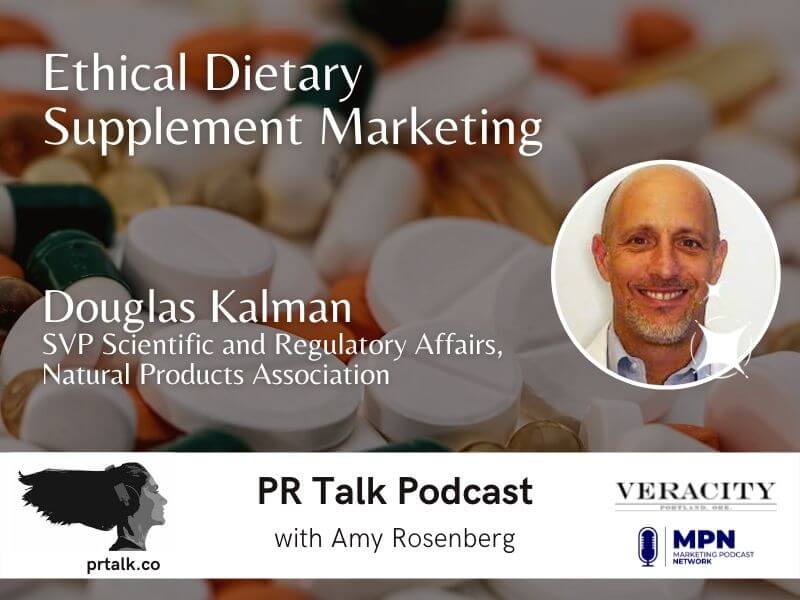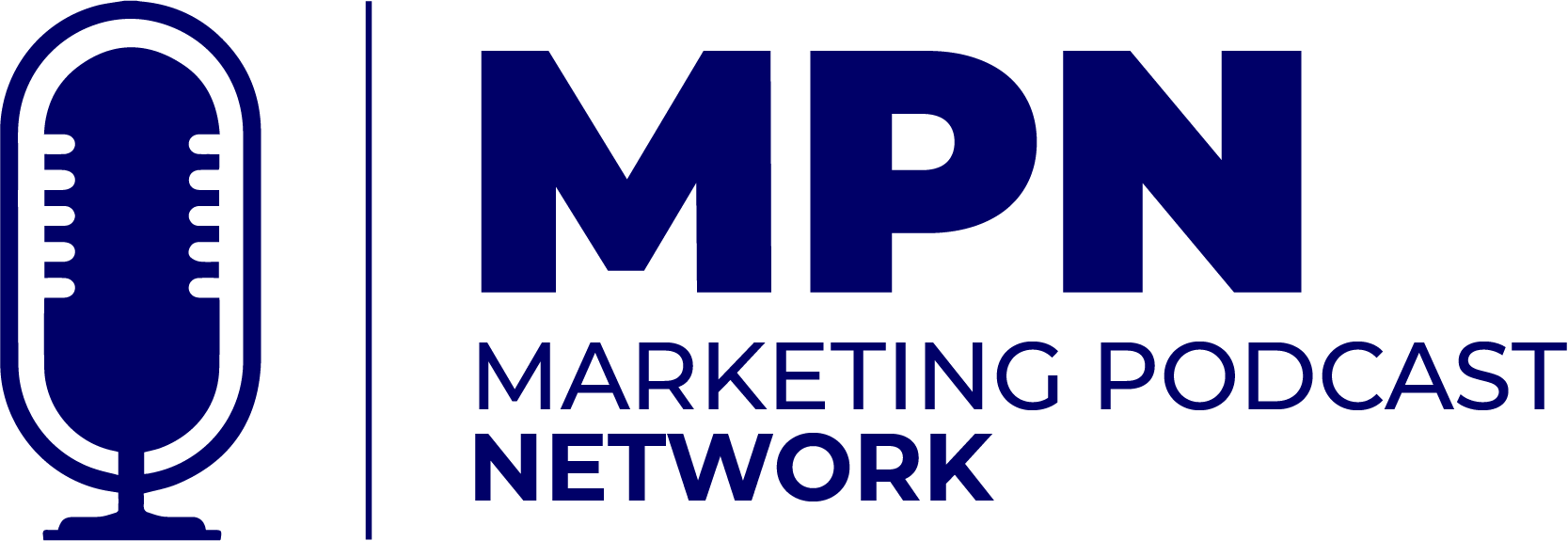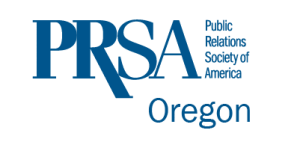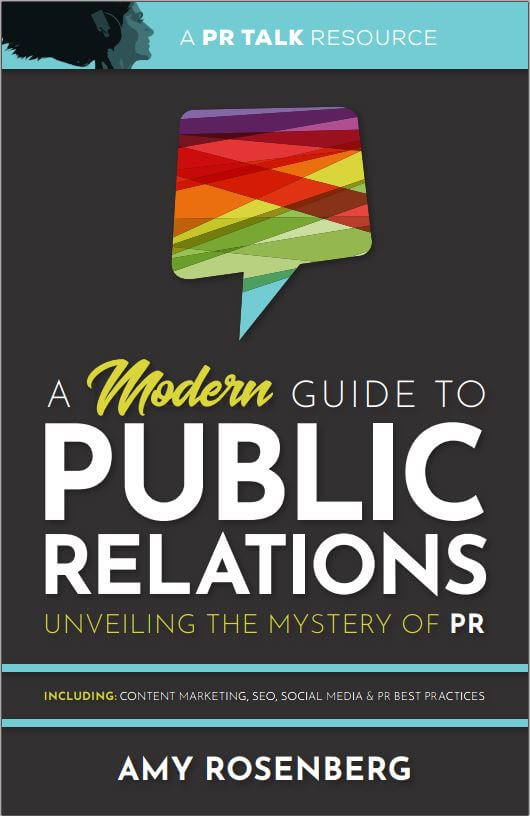Dietary supplements are a big business in the U.S., with an estimated $46 billion in sales in 2020. However, the rules around promoting these products are murky, leaving many marketers wondering how they can ethically communicate with the public.
On this episode of the PR Talk Podcast, host Amy Rosenberg talks with Dr. Douglas Kalman, senior vice president of science and regulatory affairs at the Natural Products Association, and adjunct faculty at Nova Southeastern University, about ethical marketing practices in the supplement industry and being a credible thought leader.
Complex Marketplace Can Create Potential Confusion
If you’re even a casual media consumer, you’ve probably noticed how pervasive health-related stories are, which indicates the popularity of these topics with the public. However, you likely also realize that health stories aren’t always accurate, or they may make wildly-inflated claims. Such inaccuracies may be because reporters don’t have the expertise to interpret scientific studies accurately. Other times, marketers may describe products to sound more effective than they are. Douglas offers that there are steps marketers can take to ensure they’re following ethical marketing standards and making sound claims about dietary supplements.
Understanding the Regulatory Environment
Two government agencies oversee the dietary supplement industry. The first is the Federal Trade Commission (FTC), which regulates advertising and marketing. The second agency is the Food and Drug Administration (FDA), which began overseeing the industry after President Bill Clinton signed the Dietary Supplement Health Education Act in 1994.
These two agencies have different purviews, which can be a source of some confusion. As Douglas explains it, the FDA regulates what’s in the bottle and on the bottle, while the FTC regulates what you say about the bottle.
Many of the challenges marketers face come from explaining what a supplement does or how users will benefit from taking it. Fortunately, the FTC has offered a few guidelines, called the Pfizer Factors or the reasonable basis standard, to help marketers determine whether they’re making a substantiated claim or not. The factors are:
- The type of claim.
- The type of product.
- The consequences of a false claim.
- The benefits of a truthful claim.
- The cost of developing substantiation for the claim.
- Would other experts in the field substantiate those claims?
Douglas suggests that marketers should consult the Pfizer Factors as they begin planning their messaging and campaigns. If they can’t check an item off the box, they should ask why and proceed accordingly.
A Checklist for Dietary Supplement Marketers
Whether the FTC actually enforces its marketing regulations is an open question. Douglas believes that the agency generally pays more attention to products marketed to high-risk individuals. However, there is potential to draw negative scrutiny.
For example, the Better Business Bureau operates the National Advertising Division (NAD), a non-governmental organization that reviews marketing for truthfulness, accuracy, and substantiation. Companies and individuals can challenge the veracity of an organization’s claim set. When this happens, the NAD conducts a review and makes a ruling. While these rulings aren’t binding, most companies follow the guidelines because it will draw the FTC’s attention if they don’t.
So how can marketers make ethical claims that won’t run afoul of the NAD or the FTC? Douglas offered this checklist to review before an ad goes out to the marketplace:
- Did you read the FTC’s Dietary Supplements: An Advertising Guide for Industry, which explains the dos and don’ts for marketers?
- Have you compared your claims to the Pfizer Factors?
- Have you examined creating marketing options that offer different ways of making a claim while holding to the authentic truth?
- Does your claim sound too good to be true? If so, ask if you have enough evidence to support your claim.
If marketers can check these items off, they’ll be in a fantastic position to ethically promote their supplements in the marketplace.
Possible Changes on the Horizon?
Douglas and Amy covered even more during their conversation. So, listen to the entire episode to hear more about the proposed Durbin Bill, which would expand the FDA’s oversight of the supplement industry, and how Douglas has managed to become an outspoken thought leader in the industry.
Don’t Miss an Episode
You can access more great episodes by subscribing to the PR Talk podcast on iTunes, Stitcher, Google Podcasts, iHeart Radio and Spotify.
About the guest: Douglas Kalman
Douglas Kalman PhD, RD, FACN, FISSN has been involved in over 250 clinical trials, published over 80 abstracts and more than 60 peer-reviewed manuscripts. He’s also the Co-Editor of the International Society of Sports Nutrition’s Journal and on the Editorial Board of three scientific journals.
For more information on the potential impacts of the Durbin Bill, click here and here.
Connect and follow Doug on social media:
PR Talk is part of the Marketing Podcast Network
The Marketing Podcast Network gives brands that sell to marketers direct access to reach thousands of buyers via their trusted media source: Marketing podcasts. Browse our library of shows and see where your message can be placed to reach prospective customers ripe for your message.
This episode of PR Talk is brought to you by PRSA Oregon
Throughout Oregon and Southwest Washington, PRSA provides members with networking, mentorship, skill building and professional development opportunities – whether you are a new professional fresh out of college or a skilled expert with 20 years in the industry. Check out PRSAoregon.org for more information on how membership can help you grow and connect.








